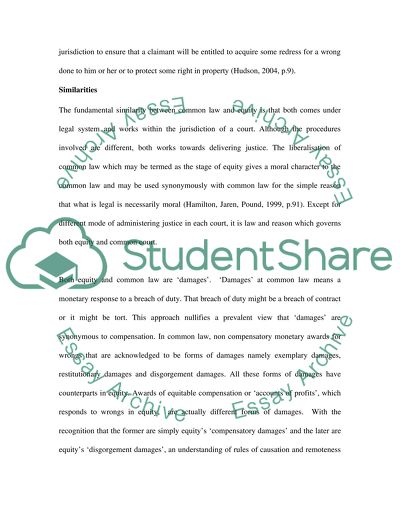Common law and Equity Essay Example | Topics and Well Written Essays - 1000 words. Retrieved from https://studentshare.org/law/1506273-common-law-and-equity
Common Law and Equity Essay Example | Topics and Well Written Essays - 1000 Words. https://studentshare.org/law/1506273-common-law-and-equity.


